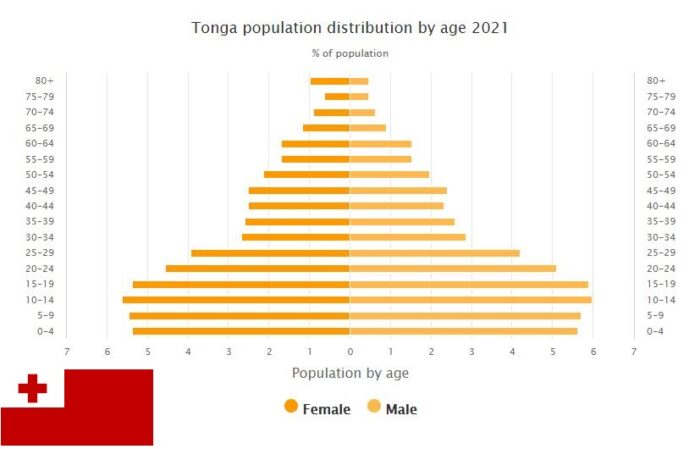Yearbook 1996
Tonga. Parliamentary elections were held January 24-25. Nine noble and nine noble members were appointed, the former of the country’s 33 noble families, the latter in general elections. In addition to the elected members, the 31 strong parliamentary parliament includes the king and twelve ministers. Of the unruly members, six were part of the Pro-Democratic movement with Akilisi Pohiva, Deputy Party Leader of the People’s Party, at the forefront.
In May, Tonga signed an agreement on a nuclear-free zone in the South Pacific. Failure to do so before would have been harshly criticized by neighboring countries.
- ABBREVIATIONFINDER.ORG: What does TO stand for? In the field of geography, this two letter acronym means Tonga. Check this to see its other meanings in English and other 35 languages.
Tonga – Nukua’lofa
Nukualofa
Nukualofa, capital of Tonga, South Pacific; 36,000 residents (2012). Nukualofa is located on the main coast of Tongatapu’s north coast. Nukualofa is Tonga’s economic center and main port with large exports of copra, banana and vanilla.
The most prominent buildings are the Royal Palace and its chapel, built in the 1860s.
Population 1996
According to Countryaah.com, the population of Tonga in 1996 was 95,865, ranking number 197 in the world. The population growth rate was 0.190% yearly, and the population density was 133.3000 people per km2.
Demography and economic geography. – Island state of Oceania, located in the central-western Pacific Ocean. The population at the 2011 census was 103,252 residents, Of which 23% resident in urban areas, especially in the agglomeration of the capital, Nuku’alofa (36,045 residents); in 2014, according to an estimate by UNDESA (United Nations Department of Economic and Social Affairs), the residents were 105,782. The economy depends on foreign aid flows (16% of GDP in 2012) and emigrant remittances, as well as on the sale of fishing licenses. Serious damage to the population and infrastructure was caused by the 2009 tsunami, estimated at around 9.5 million dollars. The tourism sector is developing.
History. – In the April 2008 elections, democratic forces won all nine elective seats in parliament and George Tupou V – officially crowned king of Tonga on 1 August 2008 – reaffirmed the monarchy’s commitment to renounce its absolute power and introduce reforms democratic. In November 2009, a committee for constitutional reform recommended the introduction of a representative parliament – made up of 26 members including 17 elective and nine members of the nobility – and the reduction of the role of the monarchy. On November 25, 2010, the first elections to the elective Parliament took place where the Democrats of the Democratic party of the friendly islands (DPFI) obtained 12 seats, but the parliamentary assembly elected a nobleman, Lord Tu῾ivakanō, as premier.
King George Topou V died of leukemia on March 18, 2012 and was succeeded by his younger brother, with the name of Tupou VI. At the end of September 2013, the prime minister suffered a slight stroke while the king and the deputy prime minister were abroad; a power vacuum was thus created, which was filled with the provisional appointment of Lord Ma’afu until 15 October. In the November 2014 elections, the DPFI won nine seats in Parliament, and its leader Samuela ῾Akilisi Pōhiva assumed the post of premier. In July 2015, Tupou VI – after three years of regency – was officially crowned King of Tonga. In foreign policy, Tonga improved his relations with Eastern partners and in July 2007 became the 151st member of the World Trade Organization.
